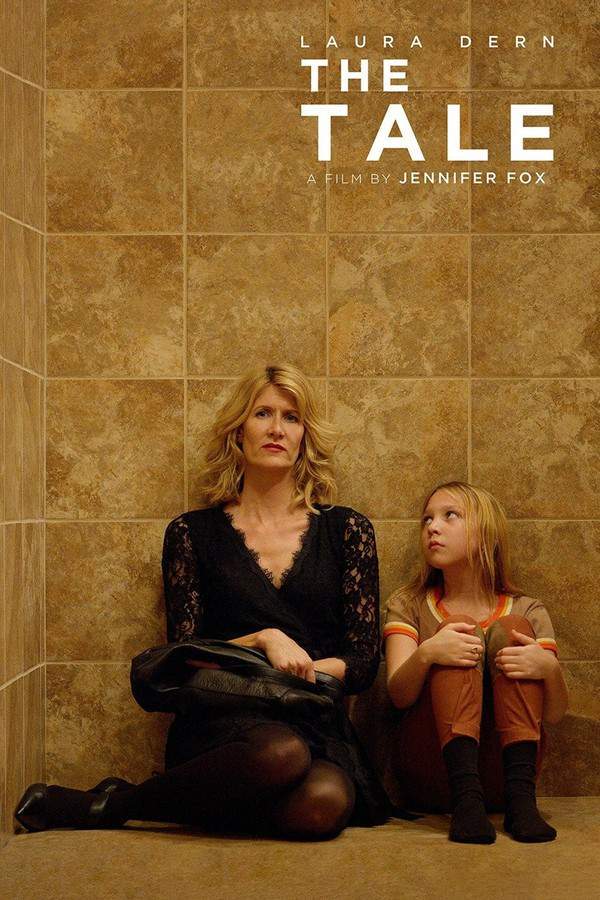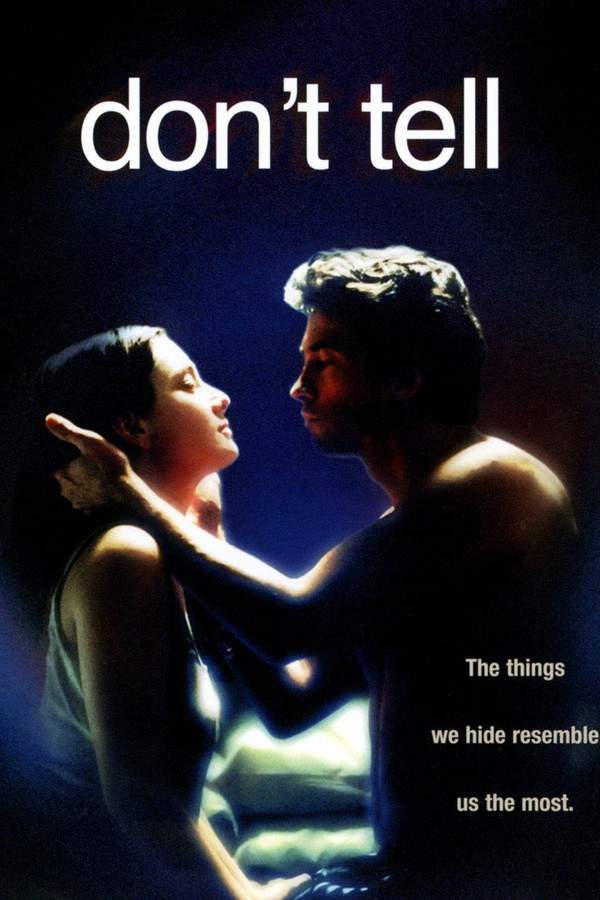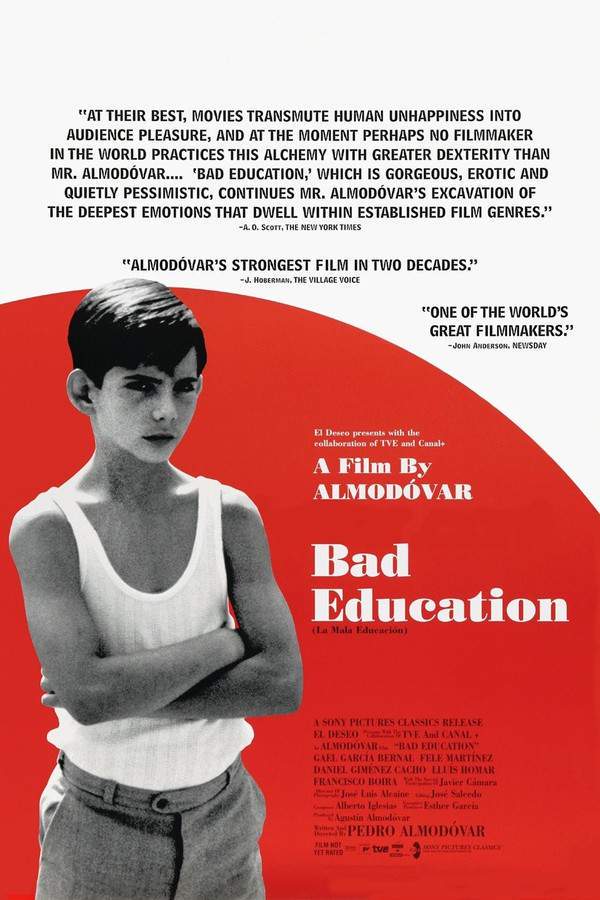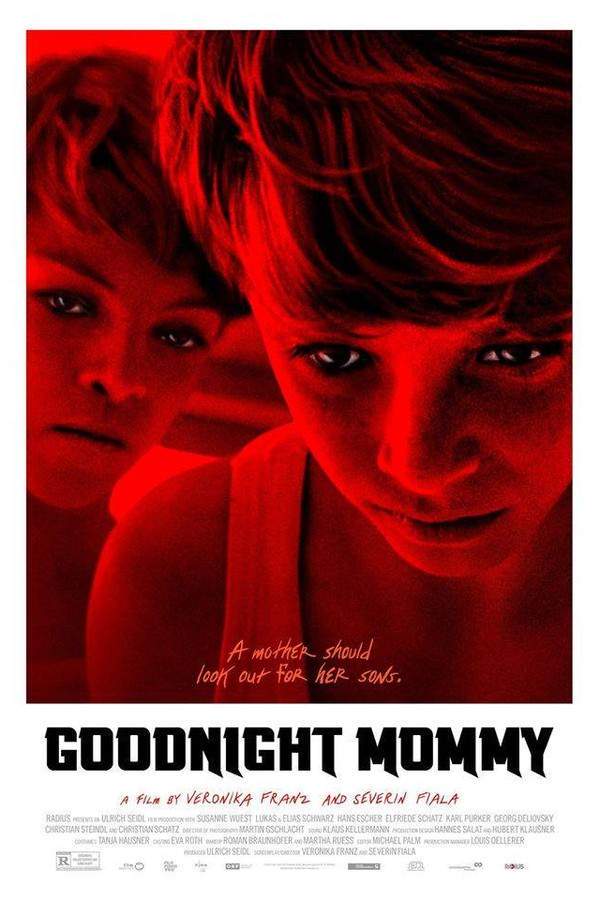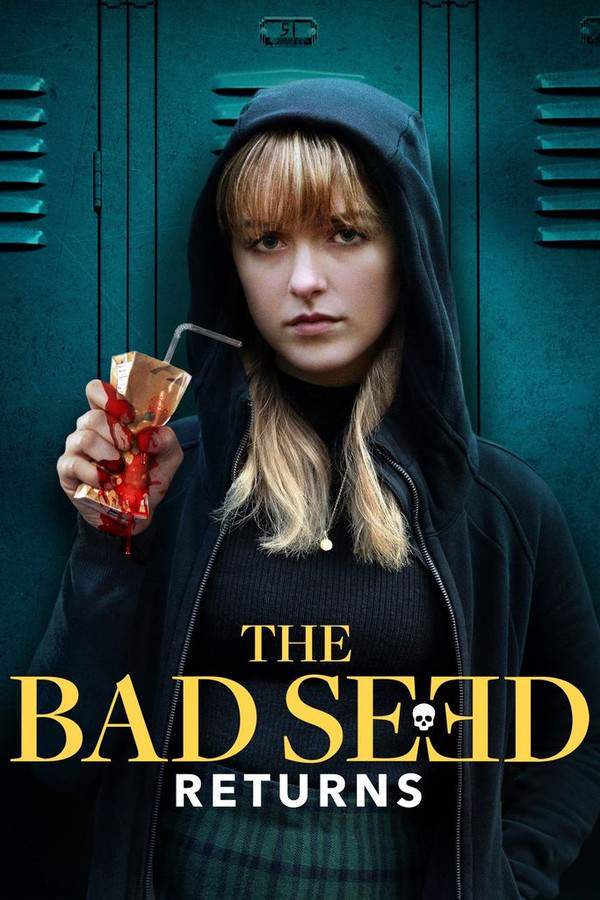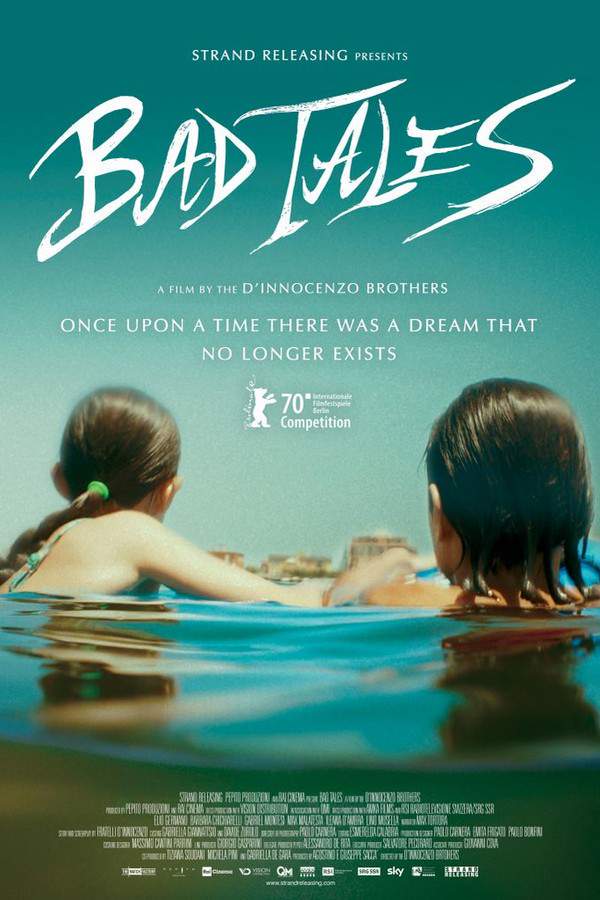
Bad Tales 2021
Directed by

Damiano D'Innocenzo
Made by

Strand Releasing
Test your knowledge of Bad Tales with our quiz!
Bad Tales Plot Summary
Read the complete plot summary and ending explained for Bad Tales (2021). From turning points to emotional moments, uncover what really happened and why it matters.
This film presents a dark and surreal narrative, allegedly inspired by entries found in a young girl’s discarded diary. The authenticity of these diary entries remains questionable, creating an air of mystery. The story unfolds through a series of brief, two-minute vignettes that collectively dive into the unsettling lives of families living in a seemingly modern suburb.
Within this suburb, families are raising pubescent children, ranging from the ages of 8 to 13. These kids are unnervingly aware of the adult world, largely due to the crude behavior and deplorable antics of their parents, who openly indulge in foul language and unfiltered conversations in front of their impressionable offspring. One especially irresponsible father teaches his 12-year-old son, portrayed by Justin Korovkin, to drive their dilapidated car, offers him condoms, and even allows him to drink beer.
The film delves into the lives of a small group of children who recognize the despair surrounding their parents. Under the influence of a deranged school teacher, played by Lino Musella, they learn to create two crude yet dangerous homemade bombs. They also acquire knowledge on where to obtain inexpensive insecticides, which contain a toxic poison that affects the nervous system.
Though the bombs are discovered before they can be detonated, the film’s dark themes persist. Ultimately, the story culminates in the father and son escaping their humdrum existence, while some of the other children left behind in the suburb tragically turn to suicide. The narrative acknowledges its roots, reminding us that the harrowing events that conclude this somber tale are drawn from the pages of a young girl’s diary, leaving us to ponder the truth behind her words.
Bad Tales Timeline
Follow the complete movie timeline of Bad Tales (2021) with every major event in chronological order. Great for understanding complex plots and story progression.
Introduction to the Suburb
The film opens with a dark and surreal depiction of a seemingly modern suburb. As the narrative unfolds, it becomes clear that the lives of families in this setting are fraught with unease and disillusionment.
Children's Unsettling Awareness
Parents in the suburb exhibit crude behavior, revealing a world that their pubescent children, aged 8 to 13, are disturbingly aware of. This toxic environment shapes the children’s perception of reality and forces them to confront the irresponsible actions of their guardians.
Irresponsible Father Figure
One father stands out for his particularly irresponsible parenting, as he teaches his 12-year-old son to drive a dilapidated car. He goes further by providing him with condoms and even allows him to drink beer, showcasing a troubling form of mentorship.
Influence of a Deranged Teacher
The narrative transitions to the school where a deranged teacher influences a small group of children. His teachings result in the children learning how to create dangerous homemade bombs, introducing a darker element to their youthful curiosity.
Acquisition of Toxic Materials
Under the teacher's guidance, the children gain knowledge on where to obtain inexpensive insecticides. These toxic substances contain dangerous poisons that affect the nervous system, symbolizing the twisted guidance they receive.
Discovery of Bombs
Before the children can follow through with their plans, the homemade bombs are discovered. This moment captures the tension between youthful innocence and the consequences of adult recklessness.
Escapism for Father and Son
The father and son choose to escape their mundane and distressing existence. This act of escape highlights the bond between them amid the overwhelming chaos of their suburban life.
Tragic Consequences for Other Children
While the father and son find their way out, the remaining children face a grim fate. Alone in their despair, some tragically resort to suicide, underlining the pervasive darkness of their environment.
Revisiting the Diary's Content
The film frequently reflects on the mysterious diary that inspired its story. It raises questions about the credibility and impact of the girl's entries, emphasizing the blurred lines between reality and fiction.
Echoes of the Past
The closing scenes serve as a somber reminder of the events that transpired. The narrative leaves viewers pondering the echoes of the past and the tragic consequences of a childhood tainted by adult choices.
Exploration of Family Dynamics
Throughout the film, the dynamics within these families are explored, revealing deep-rooted issues and dysfunction. The children's experiences reflect their attempts to navigate a world filled with adult hypocrisy and neglect.
The Children’s Bond
Despite the turmoil, the children form bonds over their shared experiences. This camaraderie becomes a vital aspect of their attempts to cope with the chaos around them as they search for meaning in their lives.
The Climax of Despair
As the narrative approaches its climax, the manifestations of despair become starkly apparent. The children’s dreams fade into nightmares, culminating in tragic decisions that underscore the film’s dark themes.
Final Reflection on Childhood
The film concludes with a chilling reflection on the nature of childhood in a fractured society. It leaves the audience to grapple with the harsh realities faced by these children and the lasting impact of their childhood experiences.
Bad Tales Characters
Explore all characters from Bad Tales (2021). Get detailed profiles with their roles, arcs, and key relationships explained.
Geremia
Geremia is a 12-year-old boy caught in a web of chaotic parenting and harsh realities. He learns adult behaviors far too early, influenced by his father's reckless teachings. This environment shapes his understanding of the world, revealing the struggles faced by children in unhealthy family dynamics.
Bruno
Bruno, as Dalila's husband, exemplifies the irresponsible father archetype. His crude behavior impacts his children's outlook on life, providing them with a distorted understanding of maturity. This character embodies the paradox of protecting innocence while simultaneously exposing it to harsh life's issues.
The Teacher
Portrayed by Lino Musella, the deranged school teacher plays a significant role in influencing the children's destructive tendencies. He represents a dark side of education, guiding them towards harmful actions instead of fostering growth and understanding. His character presents a chilling view of authority.
Bad Tales Settings
Learn where and when Bad Tales (2021) takes place. Explore the film’s settings, era, and how they shape the narrative.
Time period
The story unfolds in contemporary times, highlighting the modern suburb's societal dynamics. Issues such as parenting neglect and the unsettling awareness of children regarding adult themes remain relevant in today's world, reflecting real-life tragedies.
Location
Suburb
The movie takes place in a modern suburb, which serves as a backdrop for the unsettling lives of its residents. Known for its seemingly ordinary facade, this suburb hides the dark realities of the families living there. It contrasts the innocence of childhood with the crudeness of adult behaviors, showcasing a community affected by underlying issues.
Bad Tales Themes
Discover the main themes in Bad Tales (2021). Analyze the deeper meanings, emotional layers, and social commentary behind the film.
🔪
Despair
Despair permeates the film, affecting both the adults and children. The dark reality of parental irresponsibility leads the children to a state of confusion and hopelessness, pushing some towards tragic choices. The film emphasizes how adult problems impact innocent lives and the weight of such despair.
📓
Reality vs. Fiction
The narrative blurs the lines between reality and the fictional elements of the young girl's diary. This theme prompts viewers to question the authenticity of the depicted events, encapsulating the surreal nature of storytelling and the haunting nature of hidden truths.

Coming soon on iOS and Android
The Plot Explained Mobile App
From blockbusters to hidden gems — dive into movie stories anytime, anywhere. Save your favorites, discover plots faster, and never miss a twist again.
Sign up to be the first to know when we launch. Your email stays private — always.
Bad Tales Spoiler-Free Summary
Discover the spoiler-free summary of Bad Tales (2021). Get a concise overview without any spoilers.
In the heat of an endless Roman summer, a quiet suburb unfolds like a postcard‑perfect neighborhood, its white‑washed houses and tree‑lined streets humming with the ordinary rhythms of family life. Beneath this placid surface, however, a subtle disquiet lingers: parents speak in rough, unfiltered tones, and the unspoken expectations between generations feel as brittle as the cracked pavement. The story is whispered through the pages of a discarded diary, its authenticity hinted at but never confirmed, lending the film a dream‑like uncertainty that blurs the line between reality and imagination.
At the heart of this tension is a small group of children, each too old for carefree innocence yet still trapped in the orbit of their overbearing adults. Justin Korovkin portrays the restless son of a father who treats the world with a casual abandon—offering his boy a driver’s seat, questionable adult paraphernalia, and a reckless sense of freedom. Across the street, a charismatic yet unsettling teacher, played by Lino Musella, holds sway over the youngsters, his unconventional lessons hinting at a darker curiosity. These characters move through their suburban landscape with a mixture of quiet rebellion and yearning, their voices echoing the diary’s fragmented observations and exposing the fragile veneer of domestic normalcy.
The film’s tone is unmistakably dark and surreal, its visuals crisp yet suffused with a muted pallor that mirrors the children’s growing awareness of adult discord. Vignettes drift between everyday moments and unsettling undercurrents, crafting an atmosphere that feels both intimate and oppressive. As summer stretches on, the children’s subtle discontent gathers like a tide, suggesting that the quiet streets may soon reveal the deeper fractures within each household, leaving the viewer to wonder just how far the unseen pressures can push those caught in their wake.
Can’t find your movie? Request a summary here.
Movies with Similar Twists and Themes
Uncover films that echo the narrative beats, emotional arcs, or dramatic twists of the one you're exploring. These recommendations are handpicked based on story depth, thematic resonance, and spoiler-worthy moments — perfect for fans who crave more of the same intrigue.
Featured on this page

What's After the Movie?
Not sure whether to stay after the credits? Find out!
Explore Our Movie Platform
New Movie Releases (2026)
Famous Movie Actors
Top Film Production Studios
Movie Plot Summaries & Endings
Major Movie Awards & Winners
Best Concert Films & Music Documentaries
Movie Collections and Curated Lists
© 2026 What's After the Movie. All rights reserved.


